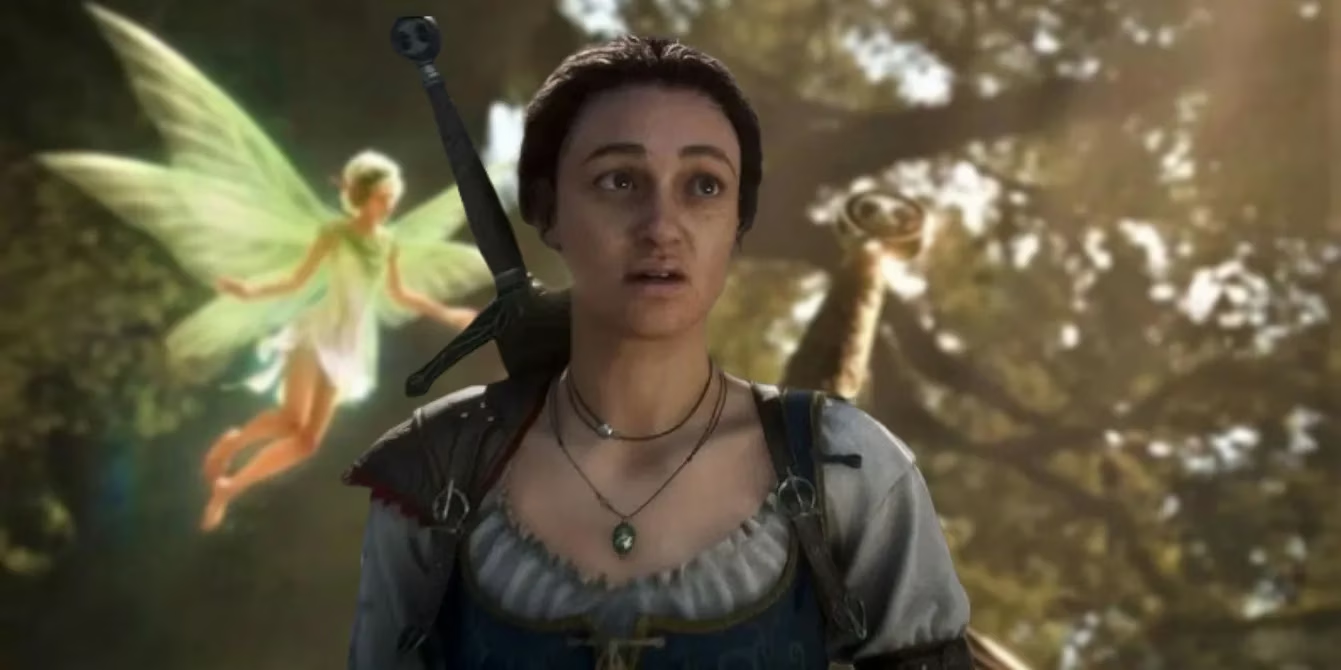In the mist-shrouded realms of Albion, anticipation swirls like autumn leaves, as players worldwide hold their breath for the Fable reboot slated to grace screens in 2026. Playground Games has teased glimpses of this revival, a pre-alpha dance of pixels and promise, yet the core remains veiled in enigma.  One cannot help but feel a shiver of nostalgia mixed with trepidation; the game's soul, woven with threads of absurdity and wit, hangs in the balance over a single, haunting question—will the hero speak? It's as if Albion itself whispers secrets through the wind, urging fans to dream of battles fought and tales untold, yet leaving hearts adrift in a sea of uncertainty. For in this digital age, where action-RPGs evolve like living legends, the silence or speech of a protagonist shapes not just gameplay, but the very essence of immersion.
One cannot help but feel a shiver of nostalgia mixed with trepidation; the game's soul, woven with threads of absurdity and wit, hangs in the balance over a single, haunting question—will the hero speak? It's as if Albion itself whispers secrets through the wind, urging fans to dream of battles fought and tales untold, yet leaving hearts adrift in a sea of uncertainty. For in this digital age, where action-RPGs evolve like living legends, the silence or speech of a protagonist shapes not just gameplay, but the very essence of immersion.
Amidst this fog of mystery, the gameplay promises a renaissance, a bold leap from the shadows of Fable 3. Modern design tendencies will likely infuse combat with fluid grace and open worlds with sprawling vistas, yet it's the storytelling that tugs at the soul. 😊 Players recall the earlier entries, where heroes stood mute as statues, blank canvases for their whims—a choice that amplified the game's parody of high-fantasy tropes. Those silent figures, whether wielding righteous power or cartoonish villainy, became vessels of pure imagination. Now, the pivot in Fable 3, with its sporadically voiced prince or princess, feels like a jarring dissonance; it shattered the illusion, turning what was once a personal journey into a scripted monologue. As one reflects, it's easy to sense the loss—a quiet hero allowed us to project our own laughter and rage, while a voice imposed limits, boxing in the boundless absurdity that defined Albion.
In the 2024 Xbox Games Showcase trailer, the protagonist's voice cuts through like a clarion call: "She has returned." This moment, fleeting yet profound, sparks waves of debate. Was it a mere flourish for the cameras, or a harbinger of full-throated dialogue throughout the game? 🤔 Consider the implications:
-
Pros of a voiced protagonist:
-
Relatability: A spoken word can forge deeper connections, making the hero feel alive and present.
-
Avoiding awkwardness: No more stilted exchanges where NPCs chatter endlessly while the player remains a mute observer.
-
Enhanced narrative: If crafted with care, voice acting can elevate emotional arcs in a realistic tale.
-
Cons:
-
Loss of flexibility: A predefined voice constrains the player's ability to shape the character's personality.
-
Risk of immersion breaks: As seen in Fable 3, inconsistent speaking creates a choppy, disconnected experience.
-
Diluting absurdity: The franchise's signature humor thrives on extremes—silent heroes magnify the parody, while voices might tame it.
A table to contrast the approaches:
| Aspect | Silent Protagonist (Fable 1/2) | Voiced Protagonist (Fable 3) | Potential in Reboot |
|---|---|---|---|
| Immersion | High 😌 | Low 😅 | Uncertain 🤷♂️ |
| Player Freedom | Unlimited 🎭 | Limited 📜 | To be seen |
| Humor & Absurdity | Amplified 🤡 | Diminished 😔 | Critical for charm |
Yet, beyond mechanics, the choice resonates on a personal level. Imagine traversing Albion's rolling hills, where every NPC bursts with quirky life—giant chickens, pompous nobles, all woven into a tapestry of satire. A silent hero amplifies this, letting the world speak for itself, while a voice risks anchoring it to reality. In moments of reflection, players might yearn for that purity, where their thoughts echo louder than any script. But if Playground Games dares to voice the hero, it must be a symphony, not a solo—integrated so seamlessly that it enhances, not hinders, the journey. Otherwise, the magic fades, leaving behind only the ghost of what could have been.
Ultimately, as the 2026 horizon draws near, the debate lingers like an unsolved riddle. Will the protagonist's voice be a beacon of connection or a chain of constraint? Only the winds of Albion know, whispering through ancient oaks and forgotten ruins. For now, players must content themselves with dreams—of battles fought in silence or speech, of worlds where absurdity reigns supreme. The choice, like the game itself, remains a tantalizing mystery, inviting us to ponder the delicate dance between word and silence in the art of storytelling. 🌟
 AdvGamer
AdvGamer